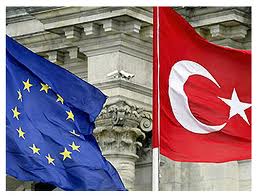To become stronger internationally, Europe must take Turkey on board, Yuhishthir Raj Isar, a professor at the American University in Paris, told EurActiv in an interview.
Isar was speaking after an event in the European Parliament marking the launch of Istanbul’s year as European Capital of Culture for 2010 (2 February), at which he was one of the keynote speakers.
“There is no reason why Europe, a continent which already has a high number of Muslims, is afraid of a country which is predominantly Muslim,” he said.
Isar pointed to Europe’s history, stressing that “the borders of Europe’s family have always been very mobile”.
Isar, who is also president of the European Forum for Arts and Heritage (EFAH), explained that for ancient Athenians, “Europe was to the south of Bulgaria”.
Indeed, according to scientists, ‘Europe’, which according to legend is the name of a Phoenician princess abducted by Zeus and who assumed the form of a bull, is in fact the name of a diocese of the Thracian province of the Roman Empire in around 400 A.D.
This diocese covers territory in southern Bulgaria, southern Greece and European Turkey.
“We haven’t done Europe as a sign of cultural nationalism,” but for “pragmatic reasons, both political and economic,” Isar said.
“Today, this family of countries is threatened by what we might call ‘Ch-India’, the power of China and India together,” he mused. “To exist internationally in a globalised world, regional unions give strength and cohesion to the many individual countries,” he added.
Born in India and a naturalised Frenchman, Isar said that his double culture gave him a “particular glance”. “India is somehow a successful Europe,” he said, explaining that “India is composed of more than 20 different countries with their own languages and cultures”.
Isar said that before becoming an EU axiom, ‘United in Diversity’ had served as the motto of the Indian Union since its independence in 1950.
